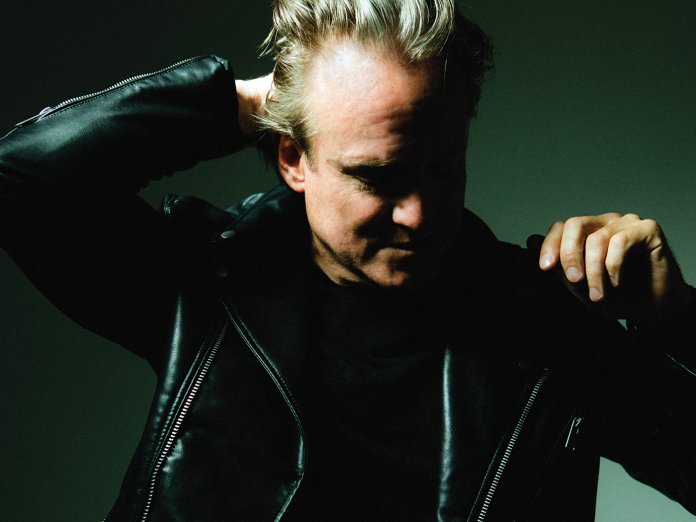To hope for the impossible is a favourite pastime of anyone who ever loved The Wrens. True believers have remained steadfast through the New Jersey band’s decades-long saga. Yet the near-misses, bad luck and self-sabotage that fill this history make it absurd to keep dreaming they’ll ever get the love they’re due.
That’s why the very existence of Aeon Station’s Observatory – the first solo album by Wrens bassist and vocalist Kevin Whelan, and ostensibly the band’s first new music in 18 years – may prompt grateful sobs. From the yearning opener “Hold On” through to the life-affirming ruckus of “Queens” and “Better Love” and to the final epiphanies in “Alpine Drive”, Observatory is a triumphant expression of resilience in the face of all the hard knocks and harder lessons that fill a life.
As such, this album qualifies as a very satisfying new chapter in the story that began in Ocean City, NJ, in 1989, when Whelan and his brother Greg formed the band with another high school friend, Charles Bissell. After the addition of drummer Jerry MacDonald in 1990, The Wrens evolved into one of the era’s scrappiest indie-rock acts and close stylistic kin to then-peers like Built To Spill, the Grifters and Spoon. By the time of their second album Secaucus in 1996, the band had tempered their songs’ hard angularities with a brave vulnerability. With 2003’s The Meadowlands, they ventured far beyond the lessons learned from the Pixies and Pavement to help forge the warmer, more eagerly anthemic brand of indie-rock soon to be adopted by Arcade Fire and Death Cab For Cutie.
Yet even amid the rapturous reception for The Meadowlands, there were signs the band were in retreat. They’d struggled to extract themselves from the record label that later inflicted Creed on the world and a possible deal with Interscope also vaporised. The pull of careers and families made it hard to capitalise on any momentum they created. The Wrens didn’t break up (and seemingly still haven’t), but live shows ceased in 2010 and release dates for a fourth album came and went with crushing regularity, Bissell’s perfectionist tendencies and shifting dynamics within the band becoming trouble points.
In the meantime, Whelan worked on songs, though his own life’s many demands – including the challenges of being a parent to a son with autism – meant periods spent not making music, too. When plans for the fourth album’s release on Sub Pop in 2019 fell apart, Whelan decided to take the songs he’d finished for The Wrens (some of them in the can for as long as a decade) and fill out an album with newly written ones. Working under the name of Aeon Station, he performed nearly all of the music here, with assists by The Wrens’ Jerry MacDonald and Greg Whelan along with Kevin’s wife Mary Ann Coronel and Observatory’s co-producer Tom Beaujour.
The results are far richer than one could reasonably expect from a corporate exec and suburban dad in New Jersey beavering away whenever other obligations allowed. They may also be more emotionally resonant, Whelan continually taking account of his own failings and frailties. In “Leaves”, he reflects on the need to see himself clearly and acknowledge “the dreams that won’t come true” in order to find a way forward. The hope for change manifests in “Fade” just as strongly: “Today is the day we are finally free of pretending/To be something we never wanted”. Here and elsewhere, the lyrics bristle with an authenticity that feels fully lived in.
With MacDonald on drums, “Fade” marks a shift out of the plaintive mood of Observatory’s early goings into the feeling of liberation that suffuses “Everything At Once”, which demonstrates The Wrens’ capacity for Zombies-worthy melodicism. The album reaches its apex with “Queens”, a thunderous display of bruised bravado that’s simultaneously suggestive of everything Arcade Fire absorbed from The Meadowlands and The Wrens gleaned from Born To Run.
With its swings between moments of introspection and others built for air-pumping by middle-aged fists, Observatory retains the unpredictability and volatility that were among The Wrens’ virtues. Yet Whelan’s heart-on-sleeve approach belies the degree of sophistication here too, which is evident in his fondness for crystalline piano melodies that evoke Bach and Pachelbel and in the grace and beauty of “Empty Rooms” and “Alpine Drive”.
Though Whelan’s role in any future version of The Wrens is unclear, Bissell has expressed fresh intentions about finishing that troublesome fourth album after all. Here in the present, Observatory is strong enough to make the old hopes burn brighter than ever.


